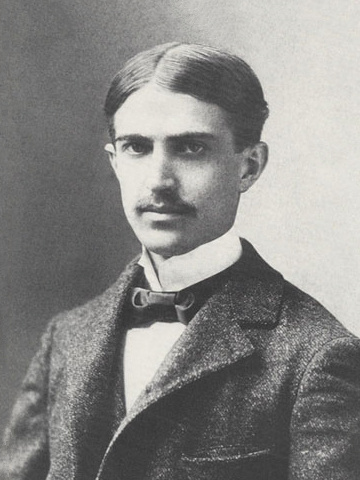Pt. VI
The Open Boat (1894)
Source: The Open Boat and Other Stories
Works
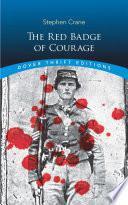
The Red Badge of Courage
Stephen CraneThe Open Boat
Stephen Crane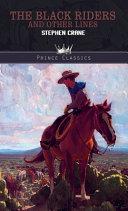
The Black Riders and Other Lines
Stephen Crane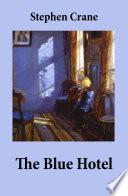
The Blue Hotel
Stephen Crane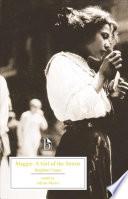
Maggie: A Girl of the Streets
Stephen CraneFamous Stephen Crane Quotes
Source: The Red Badge of Courage
“The man had arrived at that stage of drunkenness where affection is felt for the universe.”
Source: Maggie: A Girl of the Streets
Stephen Crane Quotes about men
Pt. III
The Open Boat (1894)
Pt. I
The Open Boat (1894)
Do Not Weep, Maiden, For War is Kind, st. 2
War Is Kind and Other Lines (1899)
Do Not Weep, Maiden, For War is Kind, p. 4
War Is Kind and Other Lines (1899)
Source: Epigraph in " The Clan of No Name http://web.archive.org/20040803101258/www.geocities.com/stephen_crane_us/clannoname.html" (1899); published in the anthology Wounds in the Rain (1900)
Stephen Crane Quotes
Source: The Red Badge of Courage (1895), Ch. 3
Context: The line, broken into moving fragments by the ground, went calmly on through fields and woods. The youth looked at the men nearest him, and saw, for the most part, expressions of deep interest, as if they were investigating something that had fascinated them. One or two stepped with overvaliant airs as if they were already plunged into war. Others walked as upon thin ice. The greater part of the untested men appeared quiet and absorbed. They were going to look at war, the red animal — war, the blood-swollen god. And they were deeply engrossed in this march.
Source: The Red Badge of Courage (1895), Ch. 1 First lines.
Context: The cold passed reluctantly from the earth, and the retiring fogs revealed an army stretched out on the hills, resting. As the landscape changed from brown to green, the army awakened, and began to tremble with eagerness at the noise of rumors.
“I saw a man pursuing the horizon;
Round and round they sped.”
Source: The Black Riders and Other Lines (1895), XXIV
Context: I saw a man pursuing the horizon;
Round and round they sped.
I was disturbed at this;
I accosted the man.
"It is futile," I said,
"You can never—""You lie," he cried,
And ran on.
Epigraph in " The Clan of No Name http://web.archive.org/20040803101258/www.geocities.com/stephen_crane_us/clannoname.html" (1899); published in the anthology Wounds in the Rain (1900)
Context: Unwind my riddle.
Cruel as hawks the hours fly;
Wounded men seldom come home to die;
The hard waves see an arm flung high;
Scorn hits strong because of a lie;
Yet there exists a mystic tie.
Unwind my riddle.
Do Not Weep, Maiden, For War is Kind, No. 1, st. 1
War Is Kind and Other Lines (1899)
A Man Said to the Universe, No. 20
War Is Kind and Other Lines (1899)
Source: War Is Kind and Other Poems
Source: Complete Poems of Stephen Crane
Pt. IV
The Open Boat (1894)
Source: The Black Riders and Other Lines (1895), III
The Colors by Nathalia Crane
Misattributed
The Wayfarer, No. 13
War Is Kind and Other Lines (1899)
Do Not Weep, Maiden, For War is Kind, st. 3
War Is Kind and Other Lines (1899)
Pt. I
The Open Boat (1894)
Source: The Red Badge of Courage (1895), Ch. 5
“The red sun was pasted in the sky like a wafer.”
Source: The Red Badge of Courage (1895), Ch. 9
Source: The Black Riders and Other Lines (1895), XXVIII
Source: The Red Badge of Courage (1895), Ch. 9
Source: The Black Riders and Other Lines (1895), XIII
Pt. VI
The Open Boat (1894)
“Every sin is the result of a collaboration.”
"The Blue Hotel", from The Monster and Other Stories (1898)
Source: The Red Badge of Courage (1895), Ch. 24
Source: The Red Badge of Courage (1895), Ch. 24
"The Clan of No Name" (1899); published in the anthology Wounds in the Rain (1900)
“He had fought like a pagan who defends his religion.”
Source: The Red Badge of Courage (1895), Ch. 17
Later he saw that each weed
Was a singular knife.
"Well," he mumbled at last,
"Doubtless there are other roads."
The Wayfarer, No. 13
War Is Kind and Other Lines (1899)
Source: The Black Riders and Other Lines (1895), XXIV
